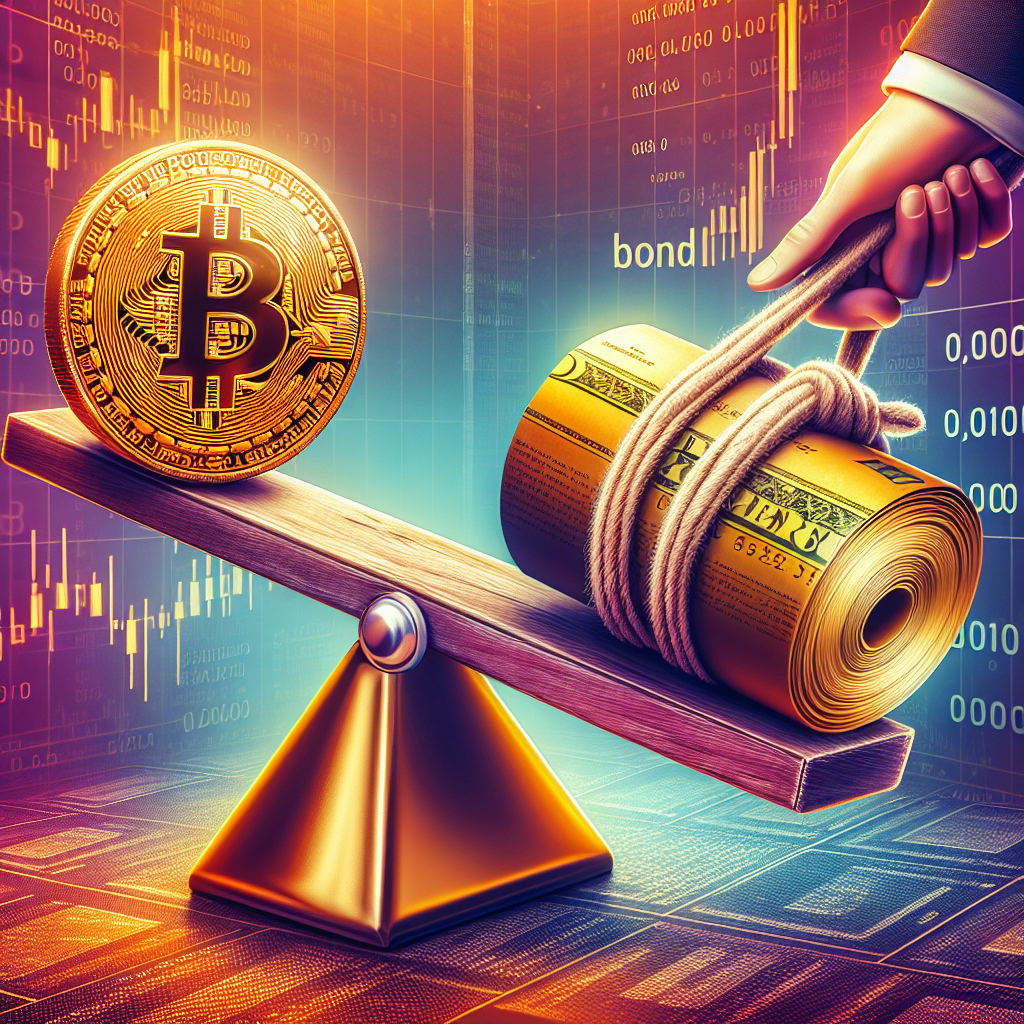Bitcoin’s Digital Gold Status Questioned as Traders Prefer Bonds
The financial landscape is fraught with shifts and trends that constantly challenge established norms. One such trend currently capturing attention is the growing preference among traders for bonds, coupled with the surge in gold prices, which raises critical questions about Bitcoin’s status as “digital gold.” As the cryptocurrency market grapples with volatility and regulatory scrutiny, many are beginning to reconsider the narrative that Bitcoin can serve as a reliable store of value akin to gold.
The Rise of Bonds and Gold
In recent months, there has been a marked increase in the interest in traditional safe-haven assets such as government bonds and gold. This trend can be attributed to several macroeconomic factors:
- Interest Rate Fluctuations: As central banks around the world navigate through inflationary pressures, the response has often included adjusting interest rates. Higher yields on bonds have made them attractive to investors seeking stable returns.
- Market Uncertainty: With ongoing geopolitical tensions and economic fluctuations, many investors are opting for the relative safety of bonds over the inherent risks in stocks and cryptocurrencies.
- Gold’s Resurgence: Gold has traditionally been viewed as a hedge against inflation. Recent global events have spurred a renewed interest in gold, driving its prices to new highs and further solidifying its reputation as a safe-haven asset.
This shift towards more traditional assets is raising eyebrows and prompting a reevaluation of Bitcoin’s narrative as a digital alternative to gold.
Bitcoin’s Identity Crisis
Bitcoin has long been heralded as “digital gold” due to its limited supply, decentralization, and potential for value retention. However, recent market activity has brought this identity into question. A few pivotal reasons contribute to this identity crisis:
1. Volatility Concerns
Bitcoin’s price is notoriously volatile, with swings that can occur within days or even hours. While Bitcoin proponents argue that this volatility makes the cryptocurrency an exciting investment opportunity, it simultaneously undermines the asset’s role as a stable store of value. In stark contrast, gold has demonstrated a historical stability that has appealed to conservative investors, particularly during times of economic turbulence.
2. The Institutional Shift
Large institutional investors have begun to diversify their portfolios, often turning to bonds as a safer option. The recent data shows a significant plunge in Bitcoin’s trading volumes, indicating that even retail investors are becoming cautious. Institutions are also increasingly weighing bonds and gold against the backdrop of Bitcoin’s price inconsistency, leading to a potential shift in market sentiment.
The Case for Gold Over Bitcoin
As gold continues to hit new price highs, its fundamental characteristics reaffirm its status as a secure investment:
- Historical Stability: Gold has stood the test of time as a store of value during both economic booms and busts, providing security for investors across generations.
- Intrinsic Value: Unlike Bitcoin, which derives its value from market perception and scarcity, gold has intrinsic value as a tangible asset used in various industries, including jewelry and electronics.
- Economic Hedge: Gold traditionally acts as an effective hedge against inflation and currency devaluation, making it a preferred asset during uncertain economic climates.
The Future of Bitcoin: A Fork in the Road
So, what does the future hold for Bitcoin in light of these shifting trends? Bitcoin may either adapt or further solidify its standing as a niche cryptocurrency amidst evolving investor preferences:
1. Adapting to Market Forces
For Bitcoin to maintain its relevance, it could benefit from positioning itself more effectively in the market. This could involve:
- Improving Transaction Speed: Lowering congestion on the network can enhance user experience and drive broader adoption.
- Promoting Institutional Adoption: Engaging with institutional investors could provide greater legitimacy and stability to its market presence.
- Diverse Use Cases: Expanding the practical applications of Bitcoin in decentralized finance (DeFi) and smart contracts may attract a wider user base.
2. Embracing a Niche Market
Alternatively, Bitcoin may continue to embrace its identity as a speculative asset rather than a safe-haven alternative to gold. If this path is chosen, it could lead to the following:
- Capturing the Speculative Investor: Bitcoin’s appeal to those looking for high-risk, high-reward investments may allow it to thrive within that niche.
- Enhancing Community Engagement: Continued support from the cryptocurrency community can bolster faith in its potential as a financial revolution.
- Innovative Developments: Continued technological advancements and integration into blockchain solutions may further build its profile as groundbreaking tech rather than mere currency.
Conclusion: Can Bitcoin Compete with Gold?
Bitcoin’s characterization as “digital gold” faces significant scrutiny as market dynamics evolve. With traders increasingly opting for bonds and gold gaining renewed standing as an asset of security, the cryptocurrency finds itself at a crucial juncture.
Navigating forward, Bitcoin has the potential to redefine its identity in an evolving market. Whether by embracing stability through technological innovation or cementing itself as the choice of the speculative investor, Bitcoin’s future remains a subject of intense debate. As these narratives unfold, investors will continue to monitor the performance of both Bitcoin and gold, evaluating their places in a diversified investment strategy.
In an ever-changing financial world, where market confidence can shift dramatically, the key to understanding the value of these assets lies in the alignment with individual financial goals and risk tolerance.




